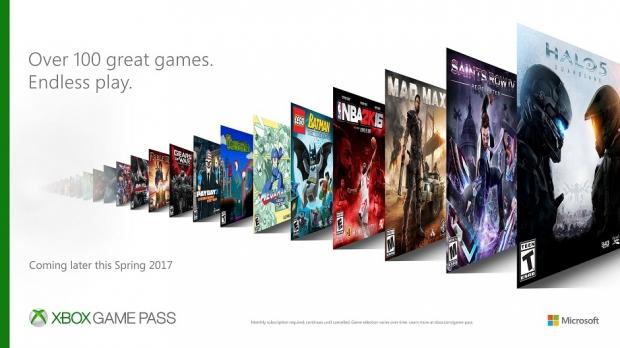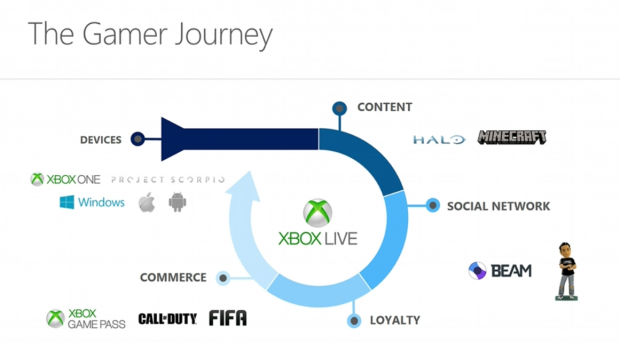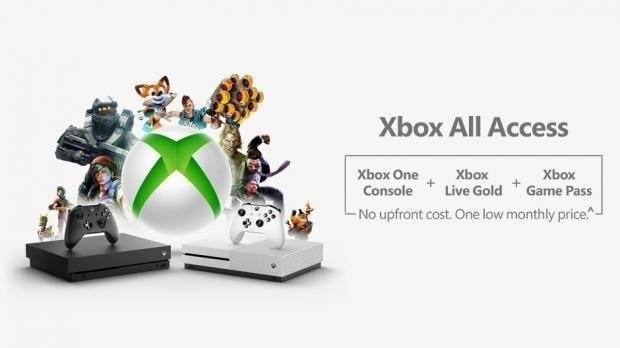Microsoft's popular Xbox Game Pass subscription plan is meant to synergize with its core business, not become it.

With publishers like EA, Ubisoft, and even Microsoft asserting game streaming is the future, many think this new accessible avenue will replace traditional full game sales. Microsoft has made strides with its $10 Xbox Game Pass subscription plan, which includes access to over 100 games for a monthly fee, but this initiative isn't about to replace the company's main revenue: selling games. It's true Microsoft makes consistent earnings from subscriptions and engagement-driven services (Mixer, Xbox LIVE, Xbox Game Pass, microtransactions, etc) but all of these are supplementary parts that work in tandem and won't ever be the whole pie. Full game and hardware sales will always be part of the equation, says Microsoft.
"We don't have a goal of being the subscription where you get all your content. This is meant to be additive to the ecosystem. We don't see a future where subscriptions are dominant," Microsoft's head of gaming services Ben Decker told GamesIndustry.biz in a recent interview.
"We see a future where customers have choice between a subscription and purchase-to-own, where there's a mixed ecosystem because that's what customers want, and that's what developers want."
Taking a look at past trends and what Xbox execs said about Game Pass, Decker's words are actually quite obvious.
(Cont. below)

Remember that Xbox is now an ecosystem. It's not just about selling hardware or even games any more: Microsoft has put lots of effort into a forward-thinking plan that plays on its strengths, including services, subscriptions, and binding PC and consoles together using Windows 10. Despite being handily beaten by Sony in console sales, this strategy has worked out quite well for Microsoft and it remains a major player in the space thanks to its future-proof business model.
Xbox Game Pass fits quite well into that ecosystem. Not only does it provide stable revenues, but it also sparks full game sales and keeps players engaged in various games for longer periods of time--both of which are paydirt for the Redmond-based company.
In a way I could see Game Pass being used as a $10 trial for a bevy of games. Players who like what they play could end up buying specific titles to keep rather than keeping their sub active. This will be especially true now that Microsoft will release all of its own first-party exclusives onto Game Pass, including Halo 6 (Halo: Infinite) and new Gears of War titles.
(Cont. below)

Microsoft also has a complimentary option for hardware. Its new Xbox All Access program, which uses credit to finance Xbox One consoles and subscriptions at a potentially affordable rate, is a means of widening the business' reach and make it more accessible.
As time goes by Microsoft will continue to experiment with various business models. Company CEO Satya Nadella says that its engagement-driven strategy isn't going anywhere. Accessibility is extremely important as it gives gamers options, and options are ultimately what any gaming business needs to embrace. So far the company has done quite well in this front.
In the above interview, Mr. Decker goes on to reinforce this point:
"What's great about gaming is you have a diversity of business models versus other forms of media, and we see Game Pass as extending that."

